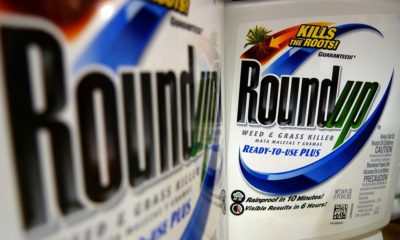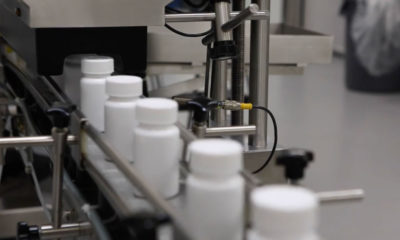A unanimous jury verdict in San Francisco federal court held in favor of a California man who alleges that the weed killer Roundup caused his cancer, and it awarded him more than $80 million in damages.
The plaintiff, 70-year-old Edwin Hardeman, said he used Roundup to control poison oak and weeds on his property for 26 years. In 2016, one year after he learned that he had non-Hodgkin’s lymphoma, a type of cancer, the World Health Organization declared that glyphosate, the key ingredient in
Roundup, was a probable carcinogen. Thereafter, Mr. Hardeman sued Monsantoalleging that it was a direct cause of his cancer.
In December 2017, after the World Health Organization declared Roundup a probable cancer-causing substance, the U.S. Environmental Protection Agency responded in favor of Monsanto. In a draft human health risk assessment, the EPA said that glyphosate was most likely not a cancer-causing substance to humans.
Roundup, with its active ingredient glyphosate, is the most prevalently used weed killer in the world. It was first developed by agro-chemical giant Monsanto; however, now that the chemical formula is no longer patent-protected, many other brand versions are readily available. Roundup
has been manufactured for years by Monsanto, which was acquired last year by the German company Bayer for $63 billion. In response to the verdict, shares in Bayer fell more than 12 percent in one day.
This case was only one of more than 11,000 active cases across the United States that are also claiming that Roundup caused cancer, and this is only the second case to go to trial. The first case was tried in August 2018, when another California man also alleged that Roundup caused his cancer. The jury in that case ruled in his favor, finding that the Roundup was causal reason for his cancer. The jury awarded the plaintiff $289 million in damages. (That verdict was later reduced to $78 million and is being appealed by Bayer.)
In this most recent second case, the jury’s verdict concluded two phases of the trial. In the first phase, the jury’s initial verdict concluded that Roundup was a “substantial factor” in causing his cancer. The verdict was based on expert testimony and research that showed that Roundup causes mutations in human cells that can lead to cancer. The expertresearch and testimony also alleged that people who are exposed to Roundup are
more likely to develop non-Hodgkin’s lymphoma.
Later, in the second phase of trial, the jury debated whether Monsanto was negligent in its actions and should be held liable for the plaintiff’s damages. The jury concluded that Monsanto deliberately failed to warn regulators or consumers about the risks of using their product, and therefore Monsanto/Bayer should be held liable for the plaintiff’s damages.
Lawyers for the plaintiff say that Monsanto repeatedly ignored scientific studies that showed the harmful health effects and carcinogenic nature of Roundup.
Despite these two verdicts, Bayer has denied the allegations that Roundup, or the chemical glyphosate, cause cancer. The company maintains that the product is safe, and that glyphosate-based herbicides are not cancer-causing. The company said that it is “disappointed” with the jury’s
decision and emphasized that it is appealing both rulings.


































